Using the following boost::asio code I run a loop of 1M sequential http calls to a Docker node.js simple http service that generates random numbers, but after a few thousand calls I start getting async_connect errors. The node.js part is not producing any errors and I believe it works OK.
To avoid resolving the host in every call and trying to speed-up, I am caching the endpoint, which makes no difference, I have tested both ways.
Can anyone see what is wrong with my code below? Are there any best practices for a stress-test tool using asio that I am missing?
//------------------------------------------------------------------------------
// https://www.boost.org/doc/libs/1_70_0/libs/beast/doc/html/beast/using_io/timeouts.html
HttpResponse HttpClientAsyncBase::_http(HttpRequest&& req)
{
using namespace boost::beast;
namespace net = boost::asio;
using tcp = net::ip::tcp;
HttpResponse res;
req.prepare_payload();
boost::beast::error_code ec = {};
const HOST_INFO host = resolve(req.host(), req.port, req.resolve);
net::io_context m_io;
boost::asio::spawn(m_io, [&](boost::asio::yield_context yield)
{
size_t retries = 0;
tcp_stream stream(m_io);
if (req.timeout_seconds == 0) get_lowest_layer(stream).expires_never();
else get_lowest_layer(stream).expires_after(std::chrono::seconds(req.timeout_seconds));
get_lowest_layer(stream).async_connect(host, yield[ec]);
if (ec) return;
http::async_write(stream, req, yield[ec]);
if (ec)
{
stream.close();
return;
}
flat_buffer buffer;
http::async_read(stream, buffer, res, yield[ec]);
stream.close();
});
m_io.run();
if (ec)
throw boost::system::system_error(ec);
return std::move(res);
}
I have tried both sync/async implementations of a boost http client and I get the exact same problem.
The error I get is "You were not connected because a duplicate name exists on the network. If joining a domain, go to System in Control Panel to change the computer name and try again. If joining a workgroup, choose another workgroup name [system:52]"
